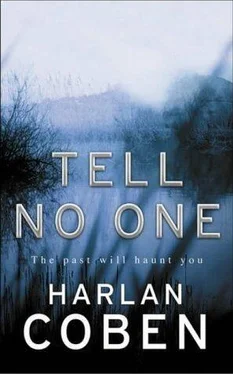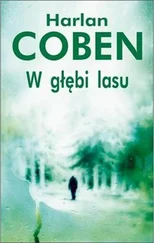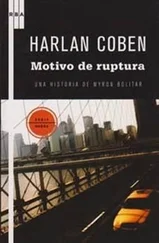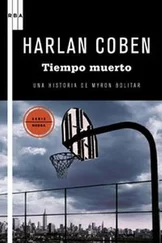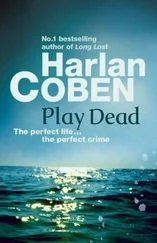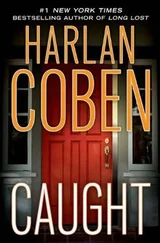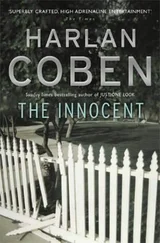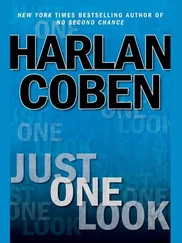"So?"
"What do you mean, so?"
"He's innocent, Hester. Let them watch."
Hester looked up and shook her head. "Don't be naïve."
"What the hell does that mean?"
"It means that if they tape him having eggs for breakfast, it can be something. He has to be careful. But there's something else."
"What?"
"The feds are going to go after Beck."
"How?"
"Got me, but trust me, they will. They got a hard-on for your friend. And it's been eight years. That means they're desperate. Desperate feds are ugly, constitutional-rights-stamping feds."
Shauna sat back and thought about the strange emails from "Elizabeth."
"What?" Hester said.
"Nothing."
"Don't hold back on me, Shauna."
"I'm not the client here."
"You saying Beck isn't telling me everything?"
An idea struck Shauna with something approaching horror. She thought about it some more, ran the idea over some test tracks, let it bounce around for a few moments.
It made sense, and yet Shauna hoped – nay, prayed – that she was wrong. She stood and hurried toward the door. "I have to go."
"What's going on?"
"Ask your client."
Special agents Nick Carlson and Tom Stone positioned themselves on the same couch over which Beck had recently waxed nostalgic. Kim Parker, Elizabeth's mother, sat across from them with her hands primly in her lap. Her face was a frozen, waxy mask. Hoyt Parker paced.
"So what's so important that you couldn't say anything over the phone?" Hoyt asked.
"We want to ask you some questions," Carlson said.
"What about?"
"Your daughter."
That froze them both.
"More specifically, we'd like to ask you about her relationship with her husband, Dr. David Beck."
Hoyt and Kim exchanged a glance. "Why?" Hoyt asked.
"It involves a matter currently under investigation."
"What matter? She's been dead for eight years. Her killer is on death row."
"Please, Detective Parker. We're all on the same side here."
The room was still and dry. Kim Parker's lips thinned and trembled. Hoyt looked at his wife and then nodded at the two men.
Carlson kept his gaze on Kim. "Mrs. Parker, how would you describe the relationship between your daughter and her husband?"
"They were very close, very much in love."
"No problems?"
"No," she said. "None."
"Would you describe Dr. Beck as a violent man?"
She looked startled. "No, never."
They looked at Hoyt. Hoyt nodded his agreement.
"To your knowledge, did Dr. Beck ever hit your daughter?"
"What?"
Carlson tried a kind smile. "If you could just answer the question."
"Never," Hoyt said. "No one hit my daughter."
"You're certain?"
His voice was firm. "Very."
Carlson looked toward Kim. "Mrs. Parker?"
"He loved her so much."
"I understand that, ma'am. But many wife-beaters profess to loving their wives."
"He never hit her."
Hoyt stopped pacing. "What's going on here?"
Carlson looked at Stone for a moment. "I want to show you some photographs, if I may. They are a bit disturbing, but I think they're important."
Stone handed Carlson the manila envelope. Carlson opened it. One by one, he placed the photographs of the bruised Elizabeth on a coffee table. He watched for a reaction. Kim Parker, as expected, let out a small cry. Hoyt Parker's face seemed at odds with itself, settling into a distant blankness.
"Where did you get these?" Hoyt asked softly.
"Have you seen them before?"
"Never," he said. He looked at his wife. She shook her head.
"But I remember the bruises," Kim Parker offered.
"When?"
"I can't remember exactly. Not long before she died. But when I saw them, they were less" – she searched for the word – "pronounced."
"Did your daughter tell you how she got them?"
"She said she was in a car accident."
"Mrs. Parker, we've checked with your wife's insurance company. She never reported a car accident. We checked police files. No one ever made a claim against her. No policeman ever filled out a report."
"So what are you saying?" Hoyt came in.
"Simply this: If your daughter wasn't in a car accident, how did she get these bruises?"
"You think her husband gave them to her?"
"It's a theory we're working on."
"Based on what?"
The two men hesitated. The hesitation said one of two things: not in front of the lady or not in front of the civilian. Hoyt picked up on it. "Kim, do you mind if I talk to the agents alone for moment?"
"Not at all." She stood on wobbly legs and teetered toward the stairs. "I'll be in the bedroom."
When she was out of sight, Hoyt said, "Okay, I'm listening."
"We don't think Dr. Beck just beat your daughter," Carlson said. "We think he murdered her."
Hoyt looked from Carlson to Stone and back to Carlson, as though waiting for the punch line. When none came, he moved to the chair. "You better start explaining."
What else had Elizabeth been keeping from me?
As I headed down Tenth Avenue toward the Quick n-Park, I again tried to dismiss those photographs as merely a record of her car accident injuries. I remembered how nonchalant Elizabeth had been about the whole thing at the time. Just a fender-bender, she said. No big deal. When I asked for details, she had pretty much brushed me off.
Now I knew that she'd lied to me about it.
I could tell you that Elizabeth never lied to me, but that would be, in light of this recent discovery, a pretty unconvincing argument. This was, however, the first lie I was aware of. I guess we both had our secrets.
When I reached the Quick-n-Park, I spotted something strange – or perhaps, I should say, someone strange. There, on the corner, was a man in a tan overcoat.
He was looking at me.
And he was oddly familiar. No one I knew, but there was still the unease of déjà vu. I'd seen this man before. This morning even. Where? I ran through my morning and spotted him in my mind's eye:
When I pulled over for coffee at eight A.M. The man with the tan overcoat had been there. In the parking lot of Starbucks.
Was I sure?
No, of course not. I diverted my eyes and hurried over to the attendant's booth. The parking attendant – his name tag read Carlo – was watching television and eating a sandwich. He kept his eyes on the screen for half a minute before sliding his gaze toward me. Then he slowly brushed the crumbs off his hands, took my ticket, and stamped it. I quickly paid the man and he handed me my key.
The man in the tan overcoat was still there.
I tried very hard not to look in his direction as I walked to my car. I got in, started it up, and when I hit Tenth Avenue, I checked the rearview mirror.
The man with the tan overcoat didn't so much as glance at me. I kept watching him until I turned toward the West Side Highway. He never looked in my direction. Paranoid. I was going nutsy paranoid.
So why had Elizabeth lied to me?
I thought about it and came up with nothing.
There were still three hours until my Bat Street message came in. Three hours. Man, I needed to distract myself. Thinking too hard about what might be on the other end of that cyber-connection shredded my stomach lining.
I knew what I had to do. I was just trying to delay the inevitable.
When I got home, Grandpa was in his customary chair, alone. The television was off. The nurse was yakking on the phone in Russian. She wasn't going to work out. I'd have to call the agency and get her replaced.
Small particles of egg were stuck to the corners of Grandpa's mouth, so I took out a handkerchief and gently scraped them away. Our eyes met, but his gaze was locked on something far beyond me. I saw us all up at the lake. Grandpa would be doing his beloved weight-loss before-and-after pose. He'd turn profile, slump, let his elastic gut hang out, and shout "Before!" and then suck it up and flex and yell "After!" He did it brilliantly. My father would howl. Dad had the greatest, most infectious laugh. It was a total body release. I used to have it too. It died with him. I could never laugh like that again. Somehow it seemed obscene.
Читать дальше
